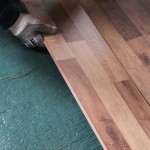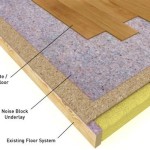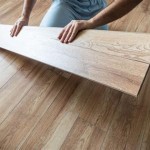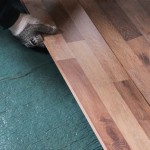How to Use Flooring Transition Strips to Enhance the Aesthetics of Your Home
Transition strips are an essential component in any flooring project, as they provide a seamless transition between different flooring materials. Whether you're combining hardwood and carpet, tile and laminate, or any other combination, transition strips not only enhance the overall aesthetics but also ensure a smooth and safe transition between surfaces.
Types of Flooring Transition Strips
Transition strips come in various types, each designed for specific applications. Some common types include:
- T-moldings: Used to transition between floors of equal height, such as hardwood and tile.
- Reducers: Used to transition between floors of different heights, such as carpet and hardwood.
- End caps: Used to finish the edges of flooring, such as at doorways or against walls.
- Stair nosings: Used to provide a safe and slip-resistant edge on stairs.
Choosing the Right Transition Strip
When selecting a transition strip, consider the following factors:
- Material: Transition strips are available in various materials, including wood, metal, rubber, and plastic. Match the material to the flooring you're transitioning between.
- Finish: Transition strips come in a range of finishes, such as brushed nickel, polished brass, and black anodized aluminum. Choose a finish that complements the flooring and other décor in the room.
- Profile: The profile of the transition strip refers to its shape and height. Select a profile that is suitable for the transition between your flooring materials.
Installing Flooring Transition Strips
Installing transition strips is a relatively straightforward process that can be completed with basic tools. Follow these steps:
- Measure and cut the transition strip: Measure the length of the area where the transition strip is needed and cut the strip to size using a hacksaw or miter saw.
- Prepare the floor: Remove any debris or uneven surfaces from the floor where the transition strip will be installed.
- Apply adhesive: Apply a construction adhesive along the back of the transition strip.
- Place the transition strip: Position the transition strip in place and press down firmly to ensure a secure bond.
- Secure with nails or screws: For added stability, use nails or screws to secure the transition strip to the floor.
Maintenance and Care
Maintaining flooring transition strips is essential to ensure their longevity and appearance. Regularly clean the strips with a mild detergent and water, and avoid using harsh chemicals or abrasive cleaners. For metal transition strips, apply a clear protective coating to prevent tarnishing.
Conclusion
By incorporating flooring transition strips into your home, you can not only enhance the aesthetics but also ensure a smooth and safe transition between different flooring materials. By following the tips and guidelines outlined in this article, you can choose the right transition strips and install them properly to complement your home's décor and enjoy a beautiful and functional floor covering.

How To Transition Flooring Best Floor Transitions 50

How To Install Transition Strips In Doorways

A Complete Guide To Flooring Transition Strips

How To Install Transition Strips In Doorways

A Complete Guide To Flooring Transition Strips

Uncover How To Use Luxury Vinyl Plank Transition Strips

How To Transition Between Two Diffe Wood Floors

10 Great Ideas About Hardwood To Tile Transition Easiklip Floors

4 Tile To Carpet Transition Options For A Stunning Floor

Uncover How To Use Luxury Vinyl Plank Transition Strips
See Also







